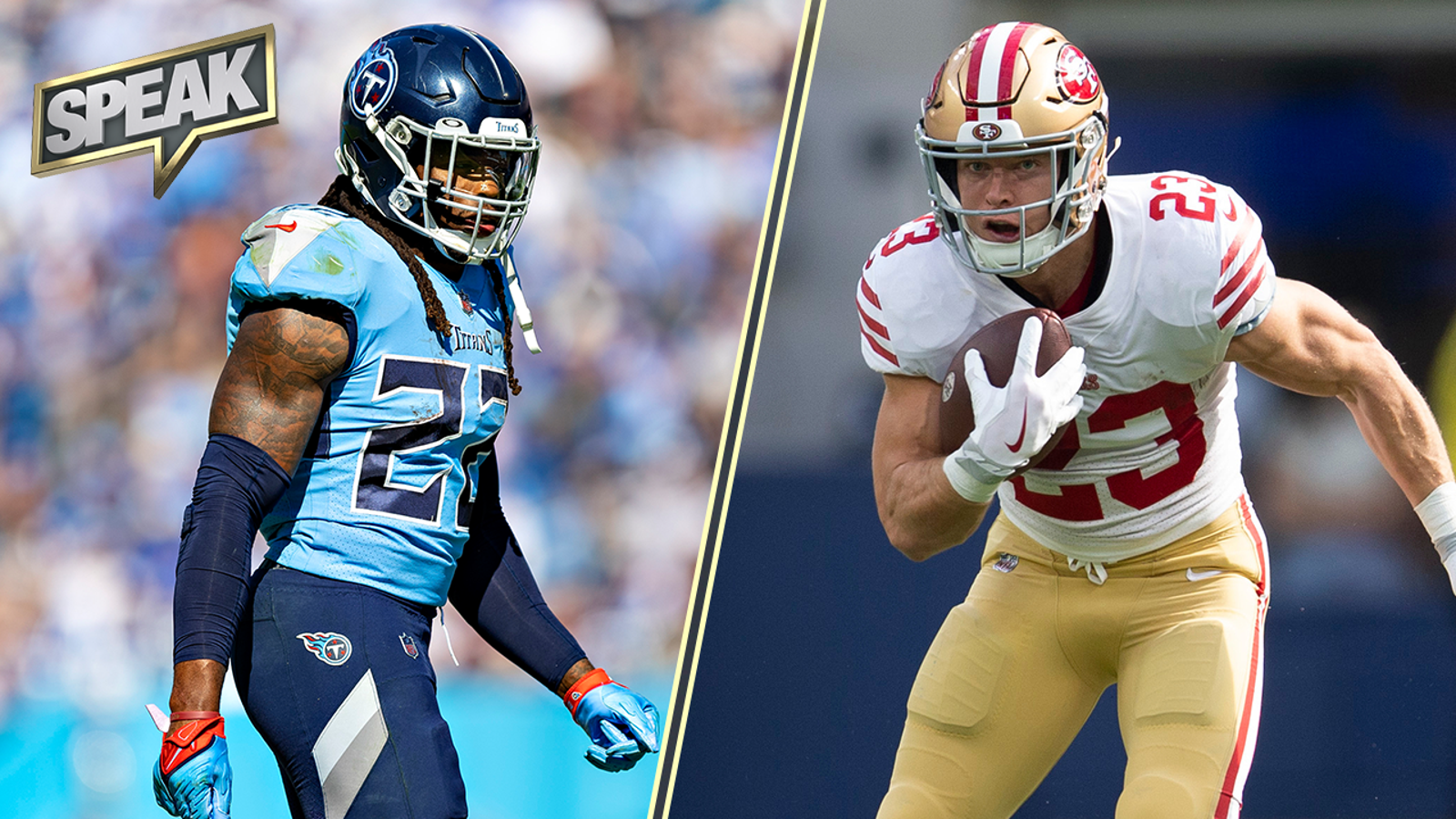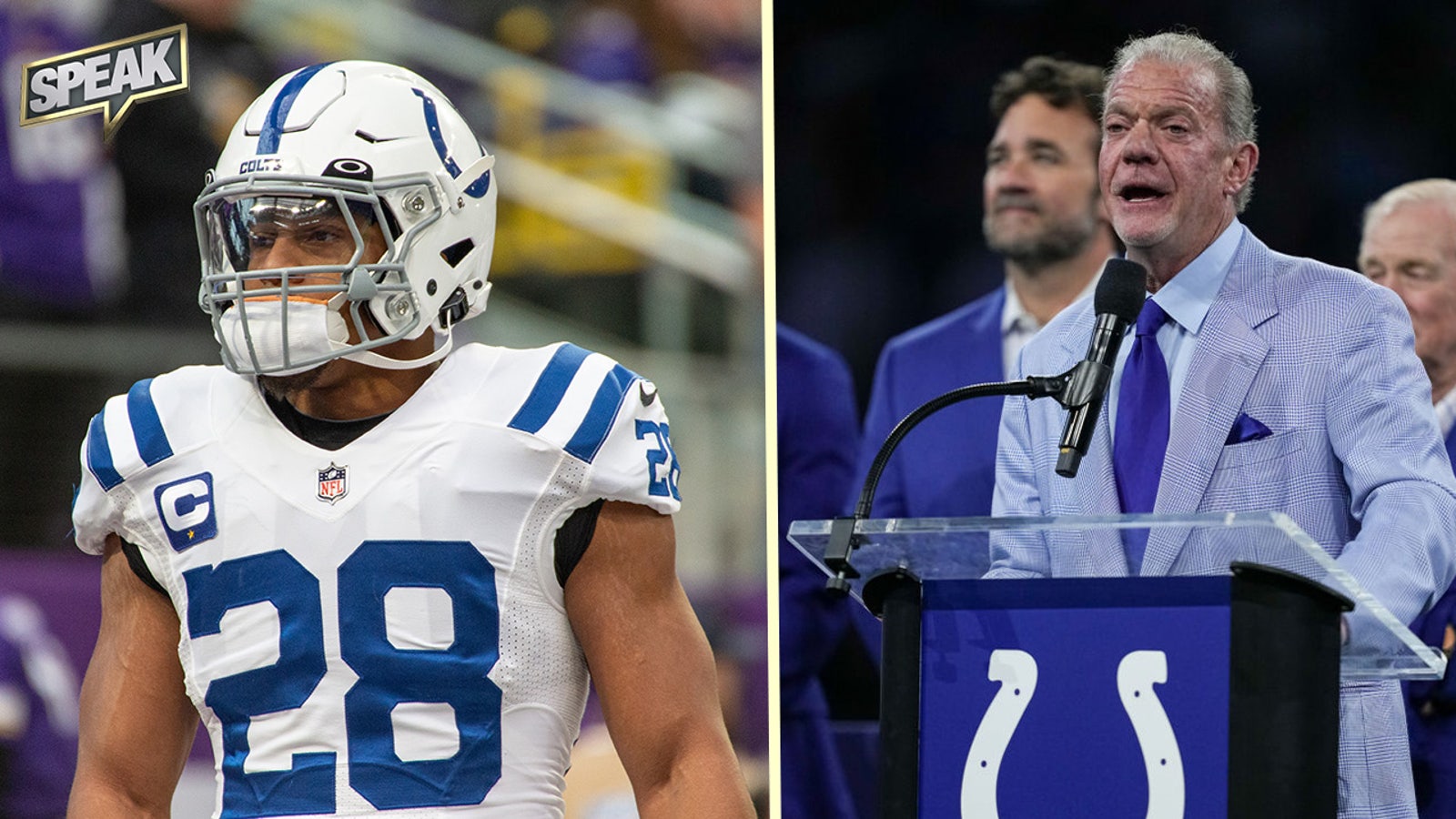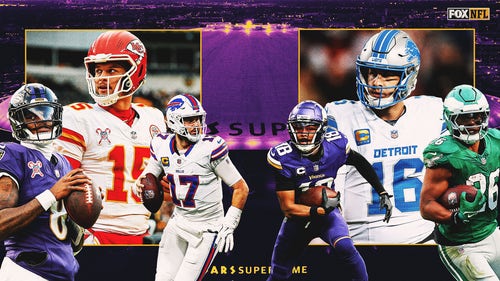
Jaguars’ Travis Etienne has a message about RB market. His peers should listen
Many high-profile running backs in the NFL have sounded off on the state of the market at their position.
It reached a crescendo July 17, when franchise-tagged star running backs Saquon Barkley, Josh Jacobs and Tony Pollard all failed to reach long-term deals with their teams.
An NFL draft analyst had tweeted about the philosophy of replacing good running backs after five years (their rookie contract, plus the franchise tag), and many of the top tailbacks — Derrick Henry, Jonathan Taylor, Austin Ekeler, Najee Harris — criticized that thought process, venting in their own ways about how the league has devalued them. It led to a group chat and eventually a Zoom call to discuss the state of running backs in the NFL.
But then there's the Jaguars' Travis Etienne, a former first-round pick and rising star running back in his own right, who offered a different perspective on the situation.
"I feel like it also depends on the type of [running back] back you are, because you definitely see some backs getting paid," Etienne told Jacksonville media on Saturday. "Christian McCaffrey, for instance. He catches the ball out of the backfield. So I feel like for running backs … you have to diversify your game. You just have to be more than a downhill bruiser in order to be able to be on that level and use that leverage when you go into those conversations [about contracts].
"Three hundred carries and [1,000] rushing yards, you see what the market is for guys like that."
Etienne's peers should be listening.
And it's not because the running backs frustrated with the market are wrong. The NFL system absolutely screws them. They do a lot for their teams (run between and outside the tackles, catch passes out of the backfield, pass block, etc.) and get run into the ground, only to get cast to the side when it's time to pay them. They often peak during their rookie deals, when they can't negotiate their way into getting paid in accordance with their value to the team. The non-exclusive franchise tag value for running backs this season, $10.091 million, is lower than it was eight years ago ($10.951 million) — even as the tag values for other positions, and the salary cap, have exploded in the same span.
"When you've been productive at a high level consistently, I think you should get your share due," Henry said. "You see these other positions that you hear about. The star or the superstars have been productive and playing at a high level, some of the best in the league, and they're getting these big contracts and getting their share due. As a running back, we want the same thing.
"No matter what we do," Henry added, "it seems like even if we are productive when it comes to negotiation, it's kind of like used against us at this point."
There appears to be no solution to the running back conundrum under the current collective bargaining agreement, which runs through the 2030 season.
The running backs' Zoom call seemingly produced no meaningful action steps to create change, other than establish a support group.
"I think it was just putting our message out there," Henry said of what the call accomplished. "Revisiting the subject throughout the season. Keeping track of guys. Trying to help each other as much as possible. I think that was a great start — having that Zoom call and having dialogue and guys speaking to the media, being outspoken on how they feel about everything and seeing the situation.
"At some point, we have to say something," Henry continued. "Hopefully, we get more and more guys on board and be a part of it."
Colts owner Jim Irsay's tweet last week sounding off about the grievances of running backs — which dragged his franchise's contract dispute with Taylor into the public — offered a small example of the kind of pushback they'll get when they try to change the pay structure with a CBA already in place.
It's why running backs should embrace what they can control: expanding their skill set to fit the modern NFL.
Becoming elite receivers is the surest way for tailbacks to get paid big money, even if that too doesn't fully compensate them based on their touches and scrimmage-yard production. McCaffrey and the Saints' Alvin Kamara — both very strong pass-catchers, on top of being elite runners — are the highest-paid running backs in the league by average annual value, at $16.015 million and $15 million, respectively. Henry, a traditional bell-cow back, is third at $12.5 million.
"For us, we have to keep continuing to grow and evolve our games because you see the way that football is going," Etienne said of running backs. "It's a passing league now. We just have to evolve as a whole."
It's a message that should be heeded.
Ben Arthur is the AFC South reporter for FOX Sports. He previously worked for The Tennessean/USA TODAY Network, where he was the Titans beat writer for a year and a half. He covered the Seattle Seahawks for SeattlePI.com for three seasons (2018-20) prior to moving to Tennessee. You can follow Ben on Twitter at @benyarthur.











